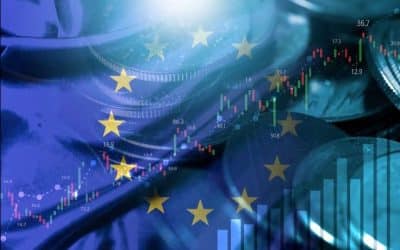Fixed income funds: higher returns than direct investment in bonds

Redacción Mapfre
Investment in Treasury Bills has experienced a boom after the normalization of interest rates by central banks, which has greatly improved their profitability after the falls registered in 2022.
In fact, the Spanish Treasury website has already processed the purchase of more than 1.1 billion euros of debt so far this year, compared to the nearly 200 million annual average that were recorded in the last decade. The surge in interest forced the Bank of Spain to start an appointment-only service for investors, with some autonomous communities reporting that there are no more slots available until April.
Currently, Treasury Bills are offering returns to maturity of around 2.7%, although commissions need to be taken into account.
“The customer is the king, clearly, and makes the final decision, but before buying a bond at 2.7% with commissions for purchase, sale and custody, among others, it’s better to buy a short-term fixed income fund with a management fee of 0.4%, where you’re also assured to professional management, having more than one bond in your portfolio, a much more diversified fund and, at the end of the day, there are funds producing higher yields than Spanish bond,” explained Ismael García Puente, manager and fund selector at MAPFRE Asset Management.
Investor appetite for this asset class is based on its profitability and reasonable security levels, but there is also an unsubstantiated element that stems from euphoria.
"The word euphoria is very significant for the market because it means that there’s an appetite that is not 100% justified by the fundamentals, and in this case, that euphoria and excess appetite leads us to think that perhaps there are other assets that, depending on the profile of the investor, could be considerably more profitable. Having said that, at some point it has to stop,” says Alberto Matellán, chief economist at MAPFRE Inversión.
Matellán has commented that the possibility of accessing the investment directly as opposed to going through an advisor, means the investor takes on more risks. “There’s a raft of investors who are interested in this type of asset. They can get in on the action directly and not use an adviser, and I think they take on more risks than those who do go through an adviser,” he commented.
Underweight equities
Faced with this moment that fixed income is experiencing, MAPFRE AM has reduced its exposure to other asset classes such as equities after the rally that characterized the start of the year.
“Right now, given the risk premium between fixed and equities, short-term fixed income seems more interesting to us,” explained García Puente.
Matellán added that it’s at times of readjustment like the current one that the investor can check to see if their portfolio is adequate or not.
“It’s often said that investors’ mettle is tested when the markets go through a rough patch, but I think that what is in fact tested is something else: whether their portfolio is suitable for them in the first place. Because if an investor is seeing those losses and considers that they are no longer a long-term player but are instead short-term and they want to sell, the problem isn’t the term at all, the problem is that the portfolio isn’t the one they need,” he explained.


